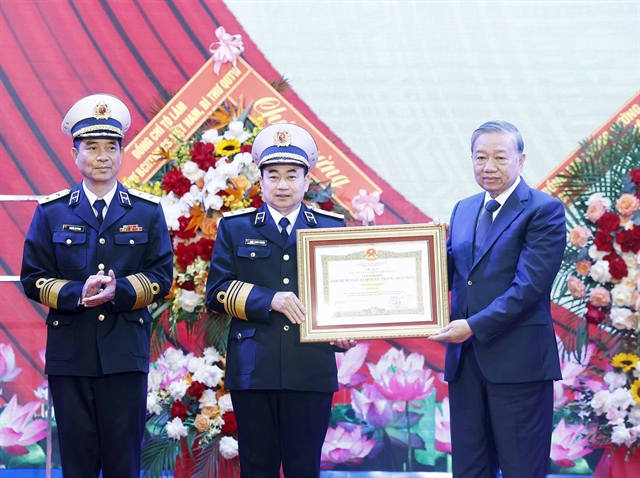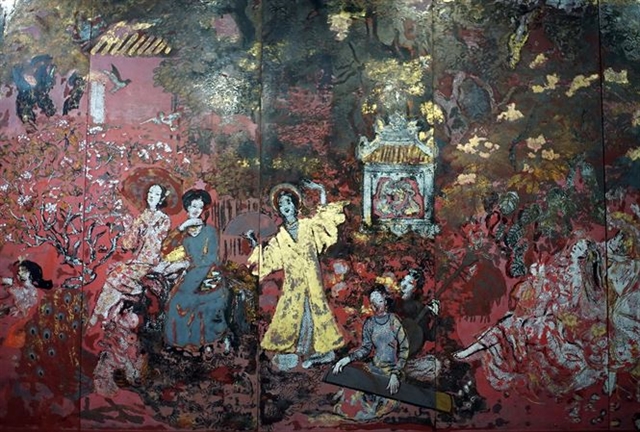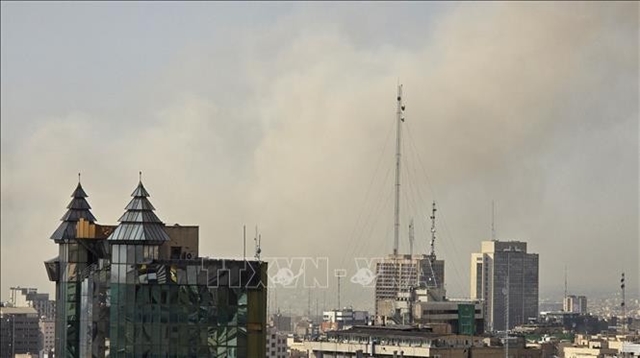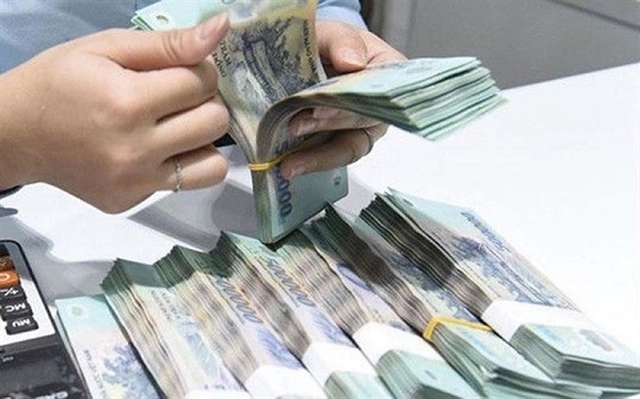 Life & Style
Life & Style

A lacquer painting by master Painter Nguyễn Gia Trí (1908-1993) – known as a national treasure – was damaged by improper cleaning carried out by a lacquer painter, according to experts from the culture ministry’s Fine Arts, Photography and Exhibition Department.

|
| Lacquer painting Vườn Xuân Trung Nam Băc (Spring Garden of North, Central and South) by Nguyễn Gia Trí, which was damaged by improper cleaning by an inexperienced painter. Photo tienphong.vn |
HÀ NỘI – A lacquer painting by master Painter Nguyễn Gia Trí (1908-1993) – known as a national treasure – was damaged by improper cleaning carried out by a lacquer painter, according to experts from the culture ministry’s Fine Arts, Photography and Exhibition Department.
The experts filed a report after examining the damaged painting. The work, titled Vườn Xuân Trung Nam Bắc (Spring Garden of North, Central and South), is kept at the HCM City Fine Arts Museum.
“The damage was caused by rough object scratching the surface of the painting,” the report said. “The outer lacquer paint was spoilt, which led to the delicate joining between shadows of paint colours, egg shells and gold gilded areas on the painting.”
The museum recently assigned HCM City artist Lưu Minh Phụng to restore the painting.
Phụng, who lacked a full understanding of Nguyễn Gia Trí’s art, used dish washing gel and sandpaper to clean the surface of the painting.
The report recommended some solutions.
First, it is necessary to preserve the painting to avoid further damage.
Second, the HCM City Department of Culture, Sports and Tourism should order the museum to draft a project to cautiously restore the painting. The museum should test restoration techniques on small areas before applying the methods to the whole painting.
The experts recommended assigning the restoration to painter Nguyễn Xuân Việt, who worked directly with master painter Nguyễn Gia Trí, or to another painter with good experience and a strong reputation in lacquer art. The restoration work should be done under tight control of the Việt Nam Fine Arts Museum.
Third, staff and managers at HCM City Fine Arts Museum should learn from the incident and use the lesson to protect other national treasures.
Finally, the report noted that the culture ministry’s Culture Heritage should help the ministry’s leaders issue a regulation guiding special protection and preservation of national treasures.
The painting, which was started in 1969 and completed in 1989, features a spring scene and images of young women representing three regions of the country in traditional long dress on the way to a spring festival. The painting also depicts pagodas, trees and spring flowers.
It has been judged by experts to be a prime example of the advancements in lacquer art in the half century before it was created.
In 1991, the work was bought by HCM City’s People’s Committee at the price of US$100,000 and given as a gift to the museum.
Painter Trí graduated from the Indochina Fine Arts College in 1936, and was a leader in setting a new style for traditional lacquer art.
He made considerable contributions to bring Vietnamese lacquer art to new heights with the combination of local culture, traditional artistic styles and western academic painting style.
In 1989, the painter was officially recognised as a contemporary painter making good contributions to establishing Vietnamese modern fine arts by the culture ministry. — VNS




